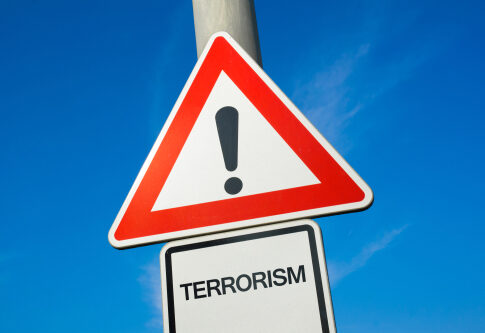Tulsi Gabbard’s alleged placement on a terrorist watch list has sparked a legal battle for transparency. The Biden administration’s refusal to confirm or deny Gabbard’s watch list status has fueled demands for clarity on this significant issue. What evidence supports Gabbard’s claim of being on a terror watchlist?
Gabbard’s Watchlist Allegations and Political Fallout
Tulsi Gabbard, a former Democratic congresswoman, has claimed she was placed on a TSA “secret terror watchlist” called Quiet Skies. She alleges this occurred due to her political shift from Democrat to Republican.
Gabbard suggests her criticism of Vice President Kamala Harris led to her being targeted by the TSA. She stated, “The Harris-Biden regime has now labeled me a domestic terror threat. Why? They see me as a threat to their power.”
My own government has placed me on a secret terror watch list targeting me as a potential domestic terror threat. Why? Political retaliation. pic.twitter.com/gRMkUVFJcu
— Tulsi Gabbard 🌺 (@TulsiGabbard) September 5, 2024
Legal Actions and Government Response
Judicial Watch filed a Freedom of Information Act (FOIA) lawsuit against the U.S. Department of Homeland Security concerning records related to Gabbard’s surveillance under the Quiet Skies program. The organization is seeking to expedite the lawsuit against DHS, as noted in a December 11 court order.
The TSA has not confirmed or denied Gabbard’s status on the Quiet Skies program, citing the protection of civil liberties and national security. Homeland Security reviewed 506 pages of records, producing 13 pages with redacted information related to Gabbard’s surveillance.
CNN’s Dana Bash promised me and the American people that she would “definitely follow up on” my being added to the secret terror watch list Quiet Skies. She never did report on this political retaliation by the Harris Administration, because it would completely undermine their… pic.twitter.com/iseBok04pu
— Tulsi Gabbard 🌺 (@TulsiGabbard) November 4, 2024
Implications for National Security and Intelligence
Gabbard’s nomination as Director of National Intelligence by Donald Trump has raised concerns among intelligence officials and allies. The role established post-9/11 to coordinate US intelligence efforts requires a deep understanding of complex global issues.
Critics point to Gabbard’s lack of formal intelligence experience and her controversial foreign policy views. Her opinions on Ukraine and NATO have been particularly divisive, with some aligning with Russian propaganda narratives.


